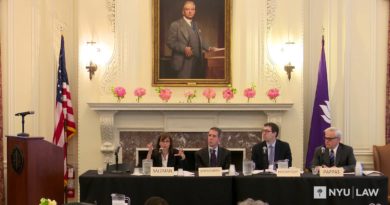Pennsylvania Imposes New Limitations on Health Care Noncompetes
On July 17, 2024, Pennsylvania passed a new law concerning noncompete agreements within the healthcare industry, which is known as the Fair Contracting for Health Care Practitioners Act (the “Act”). The Act will take effect on January 1, 2025, and brings significant changes impacting how noncompete agreements can be used and enforced within healthcare industry.
The Act prohibits the use of employment-related noncompete agreements that are: (1) more than one year in length ; and (2) entered into after the effective date (i.e., January 1, 2025). This prohibition applies to specific healthcare professionals, particularly those in direct patient care roles, including licensed medical doctors, osteopathic doctors, registered nurse anesthetists, registered nurse practitioners, and physician assistants (referred to as “Heather Care Practitioners”).
Although the Act still allows employers to enter into noncompete agreements that are one year or less in length, it prohibits enforcement of those noncompete agreements if the Health Care Practitioner was dismissed by the employer. However, the Act does not appear to impact noncompete agreements entered into prior to January 1, 2025.
The Act defines a “noncompete covenant” as “an agreement that is entered into between an employer and a Health Care Practitioner in this Commonwealth which has the effect of impeding the ability of the Health Care Practitioner to continue treating patients or accepting new patients[.]” We expect courts will be asked to decide whether a non-solicitation agreement might fit into this broad definition. The Act’s language could be interpreted either to apply only to noncompetes entered into in Pennsylvania, or, alternatively, to Health Care Practitioners in Pennsylvania.
Furthermore, the Act does not apply to noncompete agreements related to the sale of an ownership interest or the sale of all or substantially all of the assets of a health care practice, if the Health Care Practitioner has an ownership interest in the practice, or in connection with a Health Care Practitioner receiving an ownership interest in the practice. It does not appear that the one-year limited time duration mentioned above applies to these types of noncompete agreements.
The Act does allow an employer to recover from a Health Care Practitioner, reasonable expenses “related to the relocation, training, and establishment of a patient base,” only if the Health Care Practitioner left employment on his or her own volition and was not terminated or dismissed by the employer.
Additionally, the Act requires healthcare employers to issue patient notifications within ninety days after a covered Health Care Practitioner leaves the organization. This notice must inform patients how they may transfer their health records to a new Health Care Practitioner other than the employer and that they may be assigned to a new practitioner within the employer. The notice is required for all patients with an ongoing relationship with the practitioner of two or more years and seen by the departing practitioner within the past year.
Pennsylvania employers in the healthcare industry should review the noncompete agreements they currently use with Health Care Practitioners and modify their terms as needed to prepare for compliance with the Act. Upon the departure of practitioners with noncompetes covered by the Act, employers will need to ensure compliance with the Act’s new restrictions on enforcement and specific requirements for providing notice to certain patients. In the coming years, employers should also work with their legal counsel to monitor how Pennsylvania courts refine some of the issues that the Act leaves open to interpretation, such as the question of whether the Act applies to non-solicitation restrictions.






